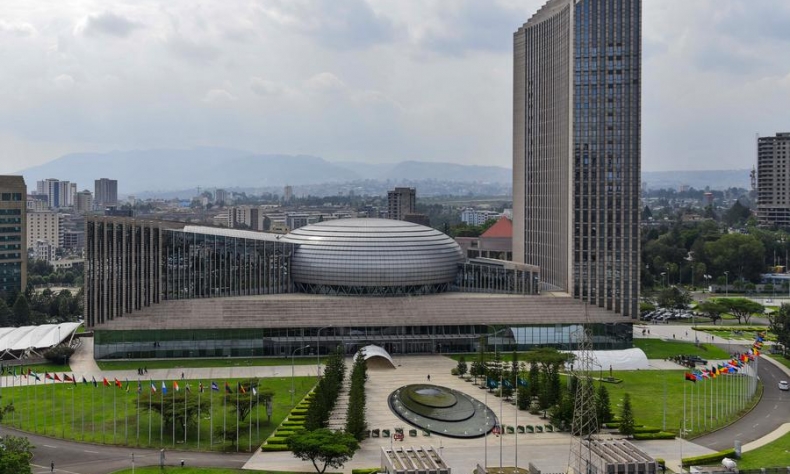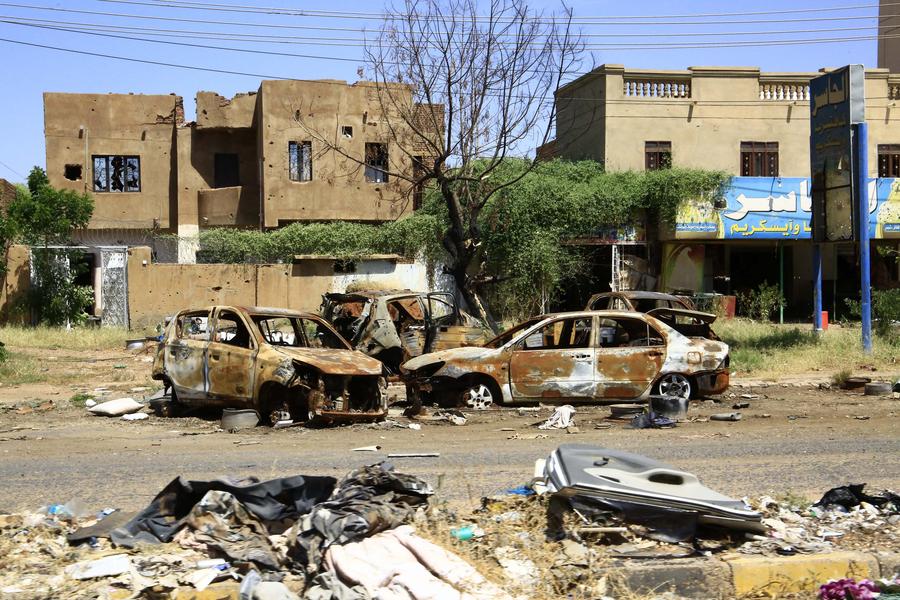Rising to the Occasion

The 2025 AU Summit should place poverty alleviation, infrastructure, and economic development at the top of its agenda.
African leaders will gather again in Addis Ababa, the Ethiopian capital, for the 2025 African Union (AU) Summit on 17-18 February. This time it’s different, though. The meeting is taking place amid a different geopolitical context, and challenging socio-economic and security conditions on the continent.
Africa remains the poorest continent globally, with extreme poverty rates exceeding 30 percent in 23 of the world’s 28 poorest countries. According to the National Bureau of Economic Research, a US private non-profit research organisation, approximately half of the population in Africa lives below the poverty line. Notably, per-capita GDP in Sub-Saharan Africa is now less than it was in 1974, having declined by over 11 percent since then.
However, GDP growth is expected to have rebounded to 3.7 percent in 2024, and is expected to reach 4.3 percent in 2025, the African Development Bank projected, after slowing to 3.1 percent in 2023 from 4.1 percent in 2022. This anticipated growth underscores the resilience of African economies. According to the World Bank, East Africa is set to pick up from a growth rate of 1.7 percent in 2023 to 2.2 percent in 2024, while West Africa is expected to grow from 3.3 percent in 2023 to 3.9 percent in 2024.
Africa’s infrastructure development drives economic growth, creates jobs, and reduces poverty. However, the continent faces significant infrastructure deficits that impede these objectives. Bottlenecks in energy and transportation continue to impede economic activities in countries like South Africa, highlighting the need for substantial infrastructure investments. Many African nations are grappling with high debt levels, with some spending more on interest payments than on basic health care. This debt burden stymies development and integration into the global economy. The region’s financial instability and lack of infrastructure inhibit growth despite a growing working-age population. Past optimism following debt relief in the early 2000s has dissipated, particularly after the economic disruptions of the COVID-19 pandemic.
The AU succeeded the Organisation of African Unity (OAU), which was founded in May 1963 in Addis Ababa. The OAU aimed to foster independence, solidarity, and anti-colonial efforts across Africa. However, the OAU faced criticism for being ineffective, particularly in conflict resolution and economic integration. In the 1999 Sirte Declaration in Libya, African leaders called for a new organisation to address these shortcomings. The AU was officially launched in Durban, South Africa, on 9 July 2002.
Myriad issues
As the African leaders converge in Addis Ababa for this year’s AU Summit, they have their hands full. In addition to security, poverty alleviation, infrastructure, and economic development will be high on the agenda.
Mozambique is a facing a potential civil conflict following the disputes over election results. The post-election violence has forced the occasional closure of the main border between South Africa and Mozambique amid claims that some Western powers were funding the protests.

The continent saw a notable spike in conflicts in Mozambique, Sudan, the Democratic Republic of the Congo (DRC), and Somalia. The civil war between the Sudanese Armed Forces and the paramilitary Rapid Support Forces persisted throughout last year.
As of October 2023, more than 70 percent of health facilities in conflict-affected areas were non-functional.
Somalia witnessed ongoing attacks by the al-Qaeda-linked extremist group al-Shabaab.
Limited success
After its formation, the OAU struggled to deal with conflicts and coups in newly independent nations. In 1994, the OAU was widely criticised for its inaction during the Rwandan genocide. The failure highlighted the need for a more proactive organisation.
One of the AU’s challenging periods was the Darfur crisis in Sudan between 2003 and 2010. The AU deployed its first peacekeeping mission in Sudan’s Darfur region. Despite efforts, the mission was underfunded and faced logistical challenges, leading to limited success.
The AU’s limited influence in global geopolitics was exposed during the Libyan Civil War in 2011 when NATO’s military intervention sidelined the organisation’s diplomatic efforts. Eventually, Libyan leader Muammar Gaddafi was toppled.
Despite these challenges, the AU has scored some victories. It established the peacekeeping missions in Somalia, Sudan, and the Central African Republic, and launched the African Continental Free Trade Area, a free trade agreement that aims to create a single market for goods and services across Africa. The AU coordinated efforts to combat Ebola and COVID-19 through the Africa CDC.
Addressing the myriad issues requires coordinated efforts to implement effective fiscal management, structural reforms, and substantial investments in infrastructure to foster sustainable economic growth and reduce poverty across the continent.
It’s time for the new African leaders to put the past failures behind them and forge a new path anchored on self-sufficiency, strong institutions, and independence. It’s no longer enough to blame colonialism, imperialism and the West despite their known interference. They can work with friendly countries like China and Russia, with Chinese President Xi Jinping and Russian leader Vladimir Putin having already proved their commitment to Africa’s development.
The author is Editor-in-Chief of African Times, Johannesburg.
 Facebook
Facebook
 Twitter
Twitter
 Linkedin
Linkedin
 Google +
Google +










